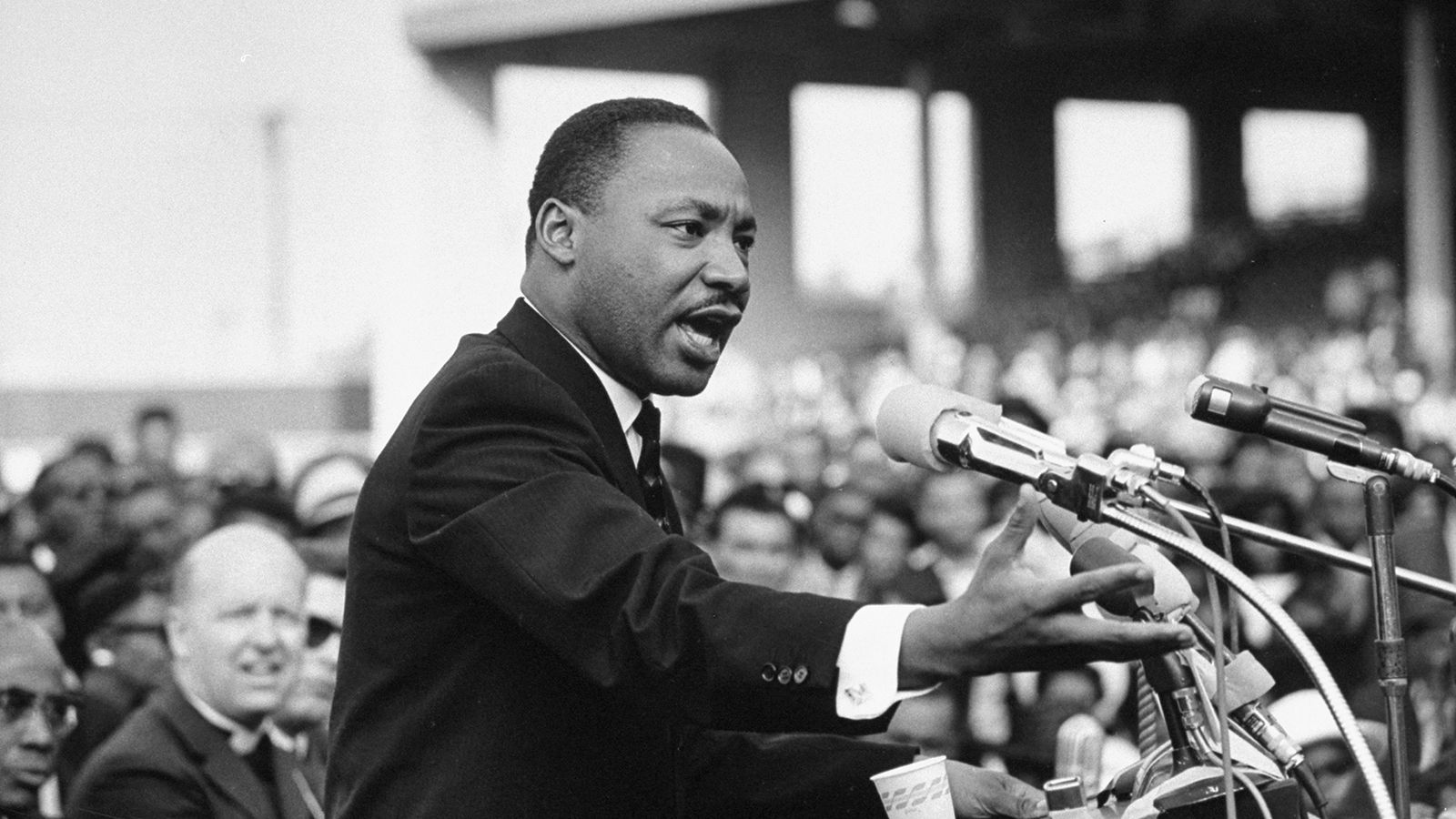
Finalists named for Nicholls presidency
November 9, 2017
Lafourche to recognize 1887 massacre
November 10, 2017Members of the Rev. Martin Luther King Jr.’s family are among high-profile civil rights leaders scheduled to be in Houma Saturday, to show support for the Terrebonne Parish NAACP’s quest to change how judges in the parish are elected.
Meanwhile the court case related to the the slain civil rights martyr’s son, Martin III, is said to have organized the gathering, scheduled for 4 p.m. Saturday at the NAACP offices, 7163 West Park Ave. and the public is invited.
As of Friday morning King III’s attendance was not yet confirmed, but if he does not travel to Houma he is expected to speak via an audio hookup.
Isaac Farris, the late civil rights legend’s nephew and son of his sister, Christina King Farris, is confirmed to attend. Both King III and Farris are past CEO’s of the King Center in Atlanta.
The Rev. Byron Clay of the Southern Christian Leadership Conference and the Rev. Kenneth Sharpton Glasgow, brother of the Rev. Al Sharpton, will also attend.
“They will be here to announce their support for our fight to create a minority judgeship,” said NAACP President Jerome Boykin, one of the plaintiffs in the case, which resulted in a federal judge declaring that Louisiana violates both the U.S. Voting Rights Act and the federal Constitution by allowing at -large voting for all five state district court benches.
STAY OF CASE DENIED
The NAACP and some of its members — including Boykin — filed suit in federal court in 2014, alleging violation of the U.S. Voting Rights Act’s Section 2. At-large voting under certain circumstances, federal courts have ruled in the past, strip minority communities of the ability to elect a candidate of their choice.
U.S. District Court James Brady has rejected a requested stay of proceedings brought by defendants Gov. John Bel Edwards and Attorney General Jeff Landry. They have a notice of appeal pending with the 5th Circuit U.S. Court of Appeals, but the appellate court has not given any indication of whether it will take the matter up.
Brady presided over an eight-day trial in March and April, and issued his liability ruling on Aug. 17, ruling that “at-large voting in the 32nd Judicial District deprives black voters of the equal opportunity to elect candidates of their choice in violation of Section 2, and it has been maintained for that purpose.”
Brady then asked both sides to prepare their respective remedies.
Attorneys for the plaintiffs did so, maintaining that a model plan presented during the trial would meet the criteria for creating a minority sub-district.
Local officials including Parish President Gordon Dove are critical of the plan, because it divides the 32nd Judicial District into five sub-districts — one drawn to include a slight majority of black voters.
The state has not submitted its own plan, maintaining in appellate documents that Brady’s order for plans to be submitted amounts to an injunction, which would allow an appeal even though the case has not been fully decided.
LEGISLATIVE SOLUTION?
The NAACP Legal Defense and Education Fund, which represents the local NAACP and its members, filed a motion for the 5th Circuit to dismiss the request for appeal.
The plaintiffs argue that Brady has not yet issued a final appealable order in the case, and that therefore it cannot be heard by the appellate court.
Attorneys for Edwards and Landry maintain that the governor and the attorney general never should have been named as defendants because they have no power to change how judges are elected in Terrebonne Parish. Brady squashed that argument in the early stages of the trial and again when his decision on liability was announced.
The local legislative delegation could sponsor a bill during the 2018 session creating one or more sub-districts. But so far no local legislator appears willing to carry that banner. The potential does exist for other lawmakers, including members of the Black Legislative Caucus, to present a solution in the form of a bill. But how willing the full legislature might be to pass a local bill not supported by the legislative home team remains unanswered.
If no bill appears, Brady will be forced to order a solution. And if that happens, he could take the further step of ordering U.S. Department of Justice supervision of judicial elections in Terrebonne Parish for years thereafter.
There is another scenario, however, that opponents of the minority sub-district appear to be banking on. An outright order from Brady in the future would most likely result in an appeal to the 5th Circuit, and if a decision was made there the side that loses could seek to have the U.S. Supreme Court review the case, although the nation’s highest court is not required to do so.
If that did happen, it would mean the high court was ready to entertain questions about the constitutional validity of the Voting Rights Act’s Section 2.
Leah Aden, lead counsel representing the Terrebonne NAACP, said she has difficulty understanding why counsel for the state saw the need to appeal midstream what remains a case in progress.
“Why spend the money and slow up the process?” she said. “Why not let the process move forward instead of doing this prematurely? It is not wise and it is not in the best interests of the taxpayers, who are footing the bill.”
Like Aden, Boykin welcomed Brady’s denial of the stay.
“Gov. John Bel Edwards and Attorney General Jeff Landry are doing everything in their power to deny African-Americans the ability o elect their candidate of choice which is a violation of the Voters Right Act. I am pleased that the judge was able to see through this legal smokescreen. I hope they get sanctions for filing those ridiculous motions and appeals. The judge as very clear in his decision.”
Rev. Dr. Martin Luther King Jr. speaking. (Photo by Julian Wasser//Time Life Pictures/Getty Images)












